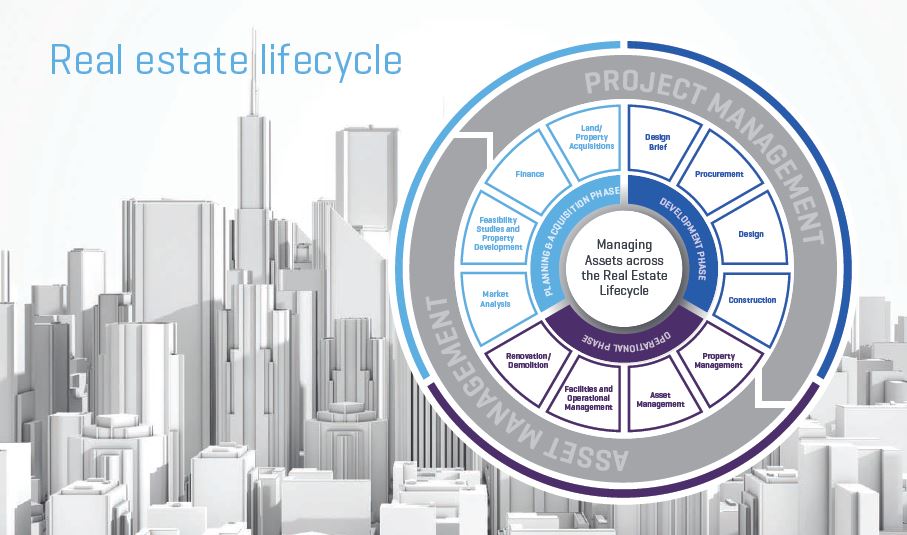Decisions taken without a definitive understanding of the whole real estate lifecycle may lead to financial challenges in the future. Professionals must therefore understand how each stage is linked and recognise that all decisions taken have long-term implications for the value, performance and risk profile of an asset.
Tim Fry is currently Project Director at Moorfield Eye Hospital and his job is to manage the design, build, financing and operation of a new fully integrated research, education and clinical care facility. He recognises that having knowledge of the whole life cycle will deliver better value to the client:

“As this is a once in a lifetime project for the hospital and the institute, we have looked at a sixty year horizon to show the scale of the undertaking, the complexity and cost of it. We have liaised with many different stakeholders and considered the building as an asset as well as a wrapper for the business to operate in so as to provide a better space in which to give patients the world class standards of care they deserve. I don’t need to be an expert in every area but I do need to know enough to realise when I am being poorly advised or who to consult when I don’t know something. I personally find this more interesting than purely managing the design and build. It stretches me and enthuses me, and gives me the opportunity to learn by looking at things from a different perspective. This has improved my performance and my value to my client and our end users.”
By adopting a holistic approach which is more than a 'sum of the parts' professionals can develop the high-level technical knowledge and insight needed to prepare and implement effective strategies and navigate the complex commercial environment in which they operate.
RICS Executive Education's International Certificate in Leadership for Property Development utilises this concept and covers the areas of knowledge required for board level business planning and execution across today’s property and built environment sectors.
Whilst each module addresses a separate specific technical part of the lifecycle, their strategic link is defined and integrated throughout the five-day residential. The resulting course equips professionals with the ability to recognise the issues and opportunities relevant to effectively manage real estate assets for both occupiers and owners/investors at all stages of the lifecycle.
Find out more about RICS Executive Education and how we are supporting professionals in the built environment position themselves as leaders in their industries here.

